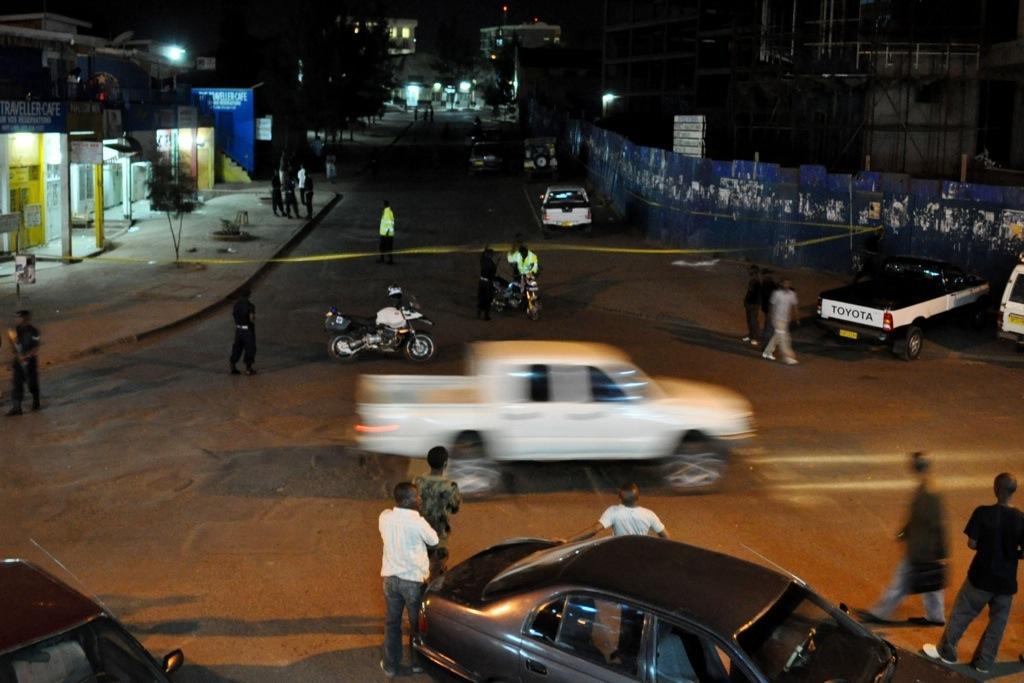Rwanda News: Grenade attack kills 2
A grenade attack rocked Kigali, Rwanda and killed two people on Jan. 4, 2012. After nearly a year of no grenade explosions, Rwandans fear they may be starting again. Here Rwandans watch the scene where a grenade exploded after it was thrown near Kigali’s main bus station, sectioned off by tape, as authorities wait nearby late on August 11, 2010.
After almost a year of quiet, Rwanda has been hit by violence again.
Police say two people were killed and 18 wounded in a grenade attack on a market-place the capital, Kigali.
“Rwanda National Police assures the public that whoever is behind the blast will be brought to book to answer the criminal charges, like has been the case in the past,” stated the police today on the police website.
Grenades have been the weapon of choice for malcontents in Rwanda over the past two years, with 11 blasts that have killed seven and injured about 100 people, according to Reuters.
The last attack was in early 2011, when three people were killed and dozens wounded.
In 2010, the year the grenades began to fall, Rwanda held its second presidential elections since the civil war that ended in 1994, after about a million people were killed in a 100-day genocide.
The Rwandan police have not yet blamed anyone for this week's bombing, but in the past they have pointed at opposition leaders in exile, some of whom have already been convicted in absentia for attempting to destabilize Rwanda. Currently, about 30 suspects are on trial in Rwanda.
Opposition figures in exile are accused of working with rebel groups like the Democratic Liberation Forces of Rwanda, known as the FDLR, a group that formed in the wake of the genocide, with the goal of taking back Rwanda. The FDLR, a Hutu militia, has attacked Rwanda repeatedly from its stronghold in the eastern jungles of the Democratic Republic of Congo, and is considered a terrorist organization in Rwanda.
The FDLR leaders are sharp critics of President Paul Kagame's government, but they uniformly deny any involvement in violence in Rwanda.
"Either the government is implicated in these periodic grenade attacks, so as to find pretext to crack down on the political opposition at a time of dwindling internal and foreign support, or the regime has lost the ability to protect its citizens," said Theogene Rudasingwa, one of the leaders of the banned opposition party, the Rwanda National Congress, according to the BBC.
